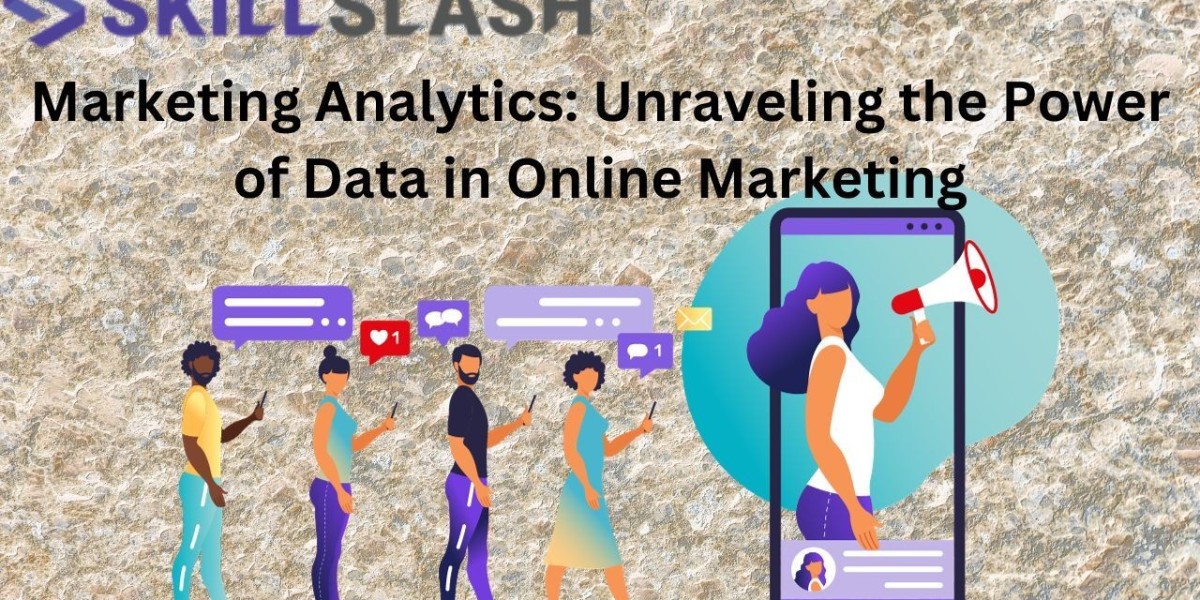Marketing has undergone a significant transformation in the digital era, with traditional advertising methods no longer being able to rely on guesswork or broad targeting. Companies now have access to a powerful tool: data, which has revolutionized marketing, particularly in the online realm. This data has enabled companies to make more informed decisions, distribute resources more effectively, and ultimately increase their profitability.
In this article, we will explore the concept of marketing analytics, its various tools and strategies, and how it can be applied in the real world.
About Marketing Analytics
What exactly is marketing analytics?
Marketing analytics is the process of gathering, analyzing, and measuring data related to marketing campaigns and initiatives. The main purpose of marketing analytics is to help businesses understand how their marketing campaigns and initiatives are performing, so they can make the most of them.In today’s digital world, where data is readily available, marketing analytics has taken on a whole new meaning.
Marketing analytics is the practice of using data-driven insights to evaluate and optimize marketing strategies and campaigns. In a digital age where information is abundant, it plays a pivotal role in helping businesses make informed decisions, enhance their return on investment (ROI), and better understand their target audience. This field involves the collection and analysis of various data sources, including website analytics, social media metrics, email marketing data, and ad campaign performance.
Key metrics in marketing analytics include ROI, conversion rate, click-through rate (CTR), customer acquisition cost (CAC), and customer lifetime value (CLV). These metrics help businesses gauge the effectiveness of their marketing efforts and allocate resources wisely. To facilitate marketing analytics, a wide range of tools and platforms are available, such as Google Analytics, marketing automation software, and data visualization tools. Successful strategies involve setting clear objectives, ensuring data quality and integration, continuous monitoring, A/B testing, and audience segmentation.
Ultimately, marketing analytics empowers businesses to make data-informed decisions, boost marketing efficiency, and drive growth in today's competitive digital landscape.
The Data Landscape in Online Marketing
The data landscape in online marketing is a vast source of information that can be utilized for marketing purposes. Every action taken, such as clicking, searching, liking, and sharing, generates data that can be used to inform marketing strategies.
This article outlines some of the key data sources that can be used in online marketing:
- Website Analytics: Tools like Google Analytics provide a wealth of information about website visitors, including demographics, behavior, and traffic sources.
- Social Media Metrics: Platforms like Facebook, Twitter, and Instagram offer insights into engagement, reach, and audience demographics.
- Email Marketing Data: Email marketing platforms track open rates, click-through rates, and conversion rates, helping marketers refine their email campaigns.
- Ad Campaign Data: Paid advertising platforms like Google Ads and Facebook Ads provide detailed data on ad performance, allowing for real-time optimization.
- Customer Relationship Management (CRM) Systems: CRM software helps businesses manage customer data and interactions, enabling personalized marketing efforts.
- E-commerce Platforms: For online retailers, platforms like Shopify and WooCommerce offer data on sales, product performance, and customer behavior.
Tools for Marketing Analytics
A number of tools and platforms are available to facilitate marketing analytics, they include:
Google Analytics: A free and comprehensive web analytics tool that provides insights into website traffic, user behavior, and more.
Marketing Automation Software: Platforms like HubSpot and Marketo offer features for tracking and analyzing marketing campaigns, lead generation, and customer engagement.
Social Media Analytics Tools: Hootsuite, Buffer, and Sprout Social help businesses monitor and analyze social media performance.
Email Marketing Platforms: Mailchimp, Constant Contact, and SendinBlue offer built-in analytics for email campaigns.
Data Visualization Tools: Tools like Tableau and Power BI help turn data into visually appealing and actionable insights.
Real-World Applications of Marketing Analytics
Marketing analytics plays a pivotal role in optimizing marketing strategies and decision-making across various industries. Here are some real-world applications of marketing analytics:
E-commerce Personalization: Online retailers leverage marketing analytics to create personalized shopping experiences. By analyzing customer behavior, purchase history, and preferences, e-commerce platforms can recommend products that are more likely to resonate with individual customers, leading to higher conversion rates and increased sales.
Content Marketing Optimization: Content marketers use analytics to measure the performance of their content. They track metrics such as page views, time on page, and engagement to understand what content resonates with their target audience. This data guides the creation of future content that aligns with audience interests and improves search engine rankings.
Social Media Advertising: Marketers on platforms like Facebook and Instagram rely on marketing analytics to fine-tune their ad campaigns. They can target specific demographics, track engagement metrics, and analyze the ROI of their ad spend. This ensures that ads are reaching the right audience and generating the desired results.
Email Campaign Improvement: Email marketers use marketing analytics to assess the effectiveness of their email campaigns. Metrics like open rates, click-through rates, and conversion rates help them refine their email content, subject lines, and send times for better engagement and higher conversions.
Product Development: Marketing analytics doesn't stop at campaign measurement; it can also inform product development. By analyzing customer feedback and preferences, businesses can make data-informed decisions about product features, improvements, and innovations.
Location-Based Marketing: Mobile apps and platforms utilize location data to deliver personalized marketing messages and promotions based on a user's geographic location. This is particularly effective for brick-and-mortar businesses looking to attract nearby customers.
In conclusion, Marketing analytics is more than just a buzzword in the online space. It’s a must-have for any business looking to succeed in today’s digital world.Data-driven decision-making, data-driven marketing, and data-driven marketing strategies all work together to drive business growth and profitability.
Whether you’re an experienced marketer or you’re just getting your feet wet in the industry, you need to understand and master marketing analytics.



